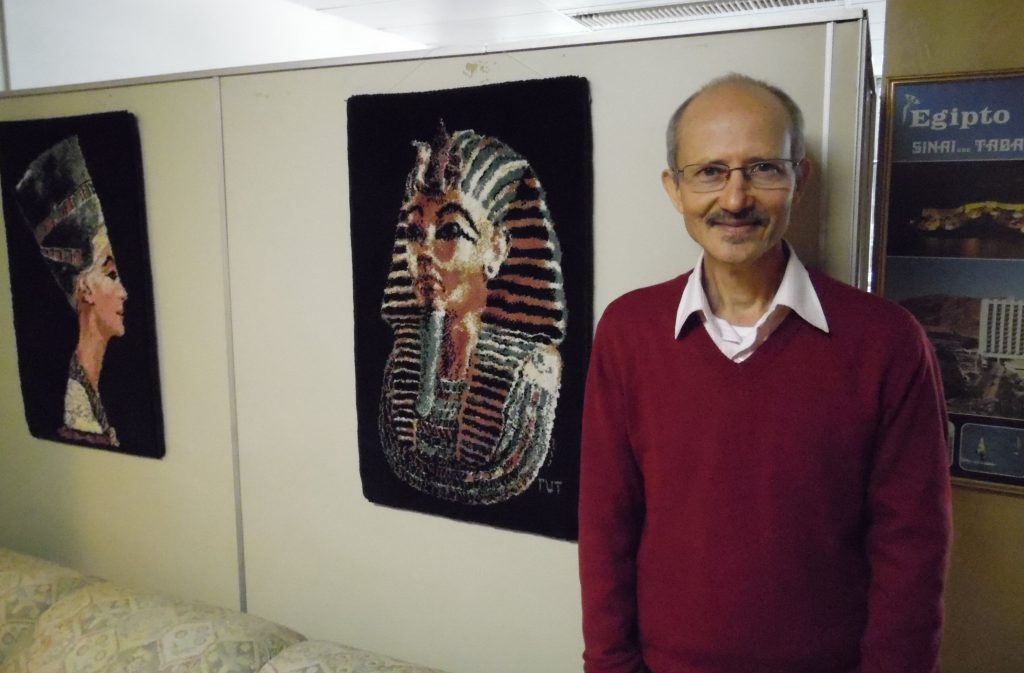São Paulo – Lotas Comércio Exterior, which works with exports of Egyptian products to the Brazilian market, is planning to expand its business this year. The company’s office in São Paulo manages to bring into Brazil yarns, fabrics, bed sheets and apparel from the Arab country, all of them manufactured with Egyptian cotton, known for its high quality.
According to Lotas’ sales manager, Vasni Mantovani (pictured above), the company plans to increase its imports of Egyptian products this year in 25% to 30%. The growth is expected to come from an effort to increase sales by the company, the recovery of the Brazilian economy, a greater perception and valuing of the products’ quality by the Brazilian consumer and the Mercosur-Egypt free trade agreement that went into effect in 2017.
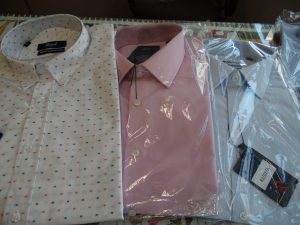
The agreement between the country and the bloc offers tariff reductions in the bilateral agreement. Mantovani says that the Egyptian products imported by Lotas are already benefiting from an initial decrease of tariffs. Some of the tariffs included in the agreement went to zero and others will decrease gradually until full exemption to all of the agreement-covered products in ten years.
Lotas is owned by Abdel Mansour, an Egyptian naturalized Brazilian, and has an office in Egypt also. The São Paulo office works alongside Brazilian companies importing Egyptian products and the Giza office works with Egyptian companies. In Egypt, Lotas also manages exports of Brazilian products to the Arab country, representing companies such as WEG, Gerdau, Selgron, among others.
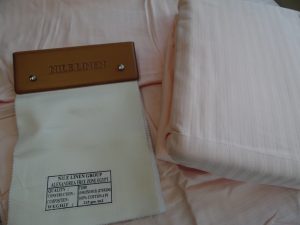
Talking to ANBA from Egypt, Mansour said that he founded the company in Brazil in 1979, trying to benefit from the trade increase between the country and Egypt. Initially, Lotas worked only with exports of Brazilian products to Egypt, but in 1993, after Brazil had opened up its market to imports, it began to work also with shipments of Egyptian cotton and its products to the Brazilian market.
Mantovani says that Lotas currently has around 40 clients in Brazil, divided into those that import Egyptian products regularly and those that do it occasionally. In Egypt, he says, Lotas represents around ten companies, all of them leading companies that export products to demanding markets and that have achieved international certifications on quality.
Lotas brings to Brazil high-count yarns, 100% cotton fabrics for high-end dress shirts, high-end bed sheets and 100% cotton apparel. Around one and a half year ago, Lotas also began to bring into the Brazilian market linen yarn to manufacture the fabric.
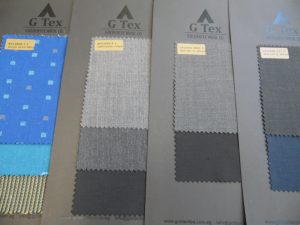
Egyptian cotton yarns account for most of the business done by Lotas in Brazil. They are used to manufacture threads (kite and sewing threads), knitwear and supply weaving mills. In the case of knitwear, the final products are luxury pieces. In the weaving mills, the fabrics manufactured with the threads are used mainly to produce high-end dress shirts.
Mantovani says that Lotas is the leading company in Brazil in the supply of sewing, kite and weaving mill threads. He says that the company has been expanding in the Brazilian market and attributes most of this growth to the fact that the country has been acknowledging the quality of the Egyptian cotton and its products. The Brazilian consumer is currently more demanding and values more products that are natural, healthy and sustainable, he says.
This search for quality by the consumer, combined to Brazil’s potential for economic growth and the Mercosur-Egypt agreement turns the Brazilian market promising to Lotas and the Egyptian products it represents. Mantovani sees great potential in the market in ten years, when the products’ tariff included in the Mercosur agreement will be at zero.
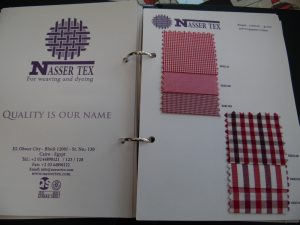
To ANBA, Abdel Mansour described the current period as one of acknowledgement of the Mercosur-Egypt agreement. He says that there are still some doubts about the documentation and certification processes and speculation on the power of the agreement to change the rhythm of Brazil-Egypt trade. The entrepreneur points out that the Egypt-Brazil trade balance is favorable to Brazil – the country exported USD 2.4 billion to Egypt in 2017 and imported USD 155 million. “Egypt’s exports to Brazil is only 6% of this trade,” he says.
According to Lotas’ owner, Egypt needs to make an effort to be able to balance out this relationship and should investigate the needs of the Brazilian market. And it should also count on Brazil’s help. Mansour mentions that Brazil imports from many countries and that Egypt is increasing its exports to the world. “The outlook is better than before upon the triggering of this protocol,” said the entrepreneur.
Quick info:
Lotas Comércio Exterior Ltda – Brasil
Website: www.lotas.com.br
Email: lotas@lotas.com.br
Phone: 55 11 3284-8397
Traslated by Sérgio Kakitani



